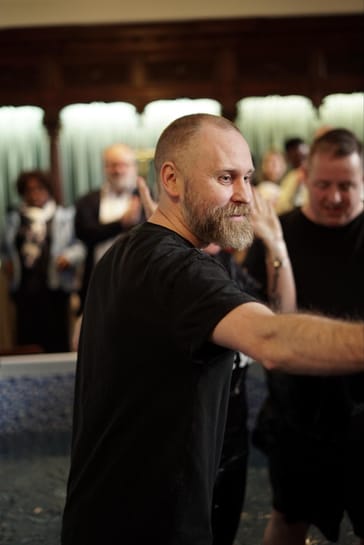18 Dear children, this is the last hour; and as you have heard that the antichrist is coming, even now many antichrists have come. This is how we know it is the last hour. 19 They went out from us, but they did not really belong to us. For if they had belonged to us, they would have remained with us; but their going showed that none of them belonged to us.
20 But you have an anointing from the Holy One, and all of you know the truth.[e] 21 I do not write to you because you do not know the truth, but because you do know itand because no lie comes from the truth. 22 Who is the liar? It is whoever denies that Jesus is the Christ. Such a person is the antichrist—denying the Father and the Son. 23 No one who denies the Son has the Father; whoever acknowledges the Son has the Father also.
24 As for you, see that what you have heard from the beginning remains in you. If it does, you also will remain in the Son and in the Father. 25 And this is what he promised us—eternal life.
26 I am writing these things to you about those who are trying to lead you astray. 27 As for you, the anointingyou received from him remains in you, and you do not need anyone to teach you. But as his anointing teaches you about all things and as that anointing is real, not counterfeit—just as it has taught you, remain in him.
1 J0hn 2:18-27
How do you know what is true? I remember looking back in history at times like the Second World War, with propaganda shaping the mind of the nation, and felt pity, thinking how simple and naive people must have been back then. However, we are no less influenced or immune to deception. With global connectivity and social media shaping our neural pathways, cultural narratives increasingly polarising us, we are the most confused and influenced generation in history. We celebrate things that were taboo fifty years ago. We condemn what was considered virtuous. Our ideas and values have shifted at an unprecedented speed. Are we confident that we know what is true?
Truth is not simple and there are three common ways that we can be misled.
- We mistake popularity for truth. We are socially wired and our brains will naturally consider the thoughts of the majority to be probable. After all so many people can’t all be wrong.
- We mistake frequency for truth. When you hear something enough times, it starts to feel increasingly familiar and real in our thoughts.
- We mistake comfort for truth. We all choose the path of least resistance. If an idea is easy or it validates something that we want to believe, it becomes very hard to distinguish it from truth.
When we think about the idea of antichrists, we often imagine demonic figures with pentagrams and 666s on their foreheads. However, John says that they are simply people who have built their lives upon lies. They have been deceived and are now leading others into a false direction. Antichrists are teachers, grocers, actors, postmen and other ordinary men and women who have taken hold of the belief that something other than Jesus will lead them to life. This doesn’t mean that we demonise them but we do need to recognise the destination of their ideas. Every thought is a train and not every one will lead us to God’s dream for this world and your life.
The most dangerous lies are the ones that we long to believe.
In the midst of so many beliefs and polarising ideas, not everything is good, true or helpful. We need discernment. John teaches us that we need someone, a person who we can trust, who is not immersed in our culture and relationships to lead us in truth. He explains that God, our creator, is with and reveals truth to us. We have been anointed by the Holy Spirit and that power lives inside us, guiding us towards Jesus and towards truth.
Reflect
- How can you know if you believe something that is untrue?
- What belief or mindset do you have that leads you away from Jesus? How can you change it?
Respond
Pause and pray. Ask the Holy Spirit to guide you today into truth and to open your heart up to what Jesus wants to lead you towards.


